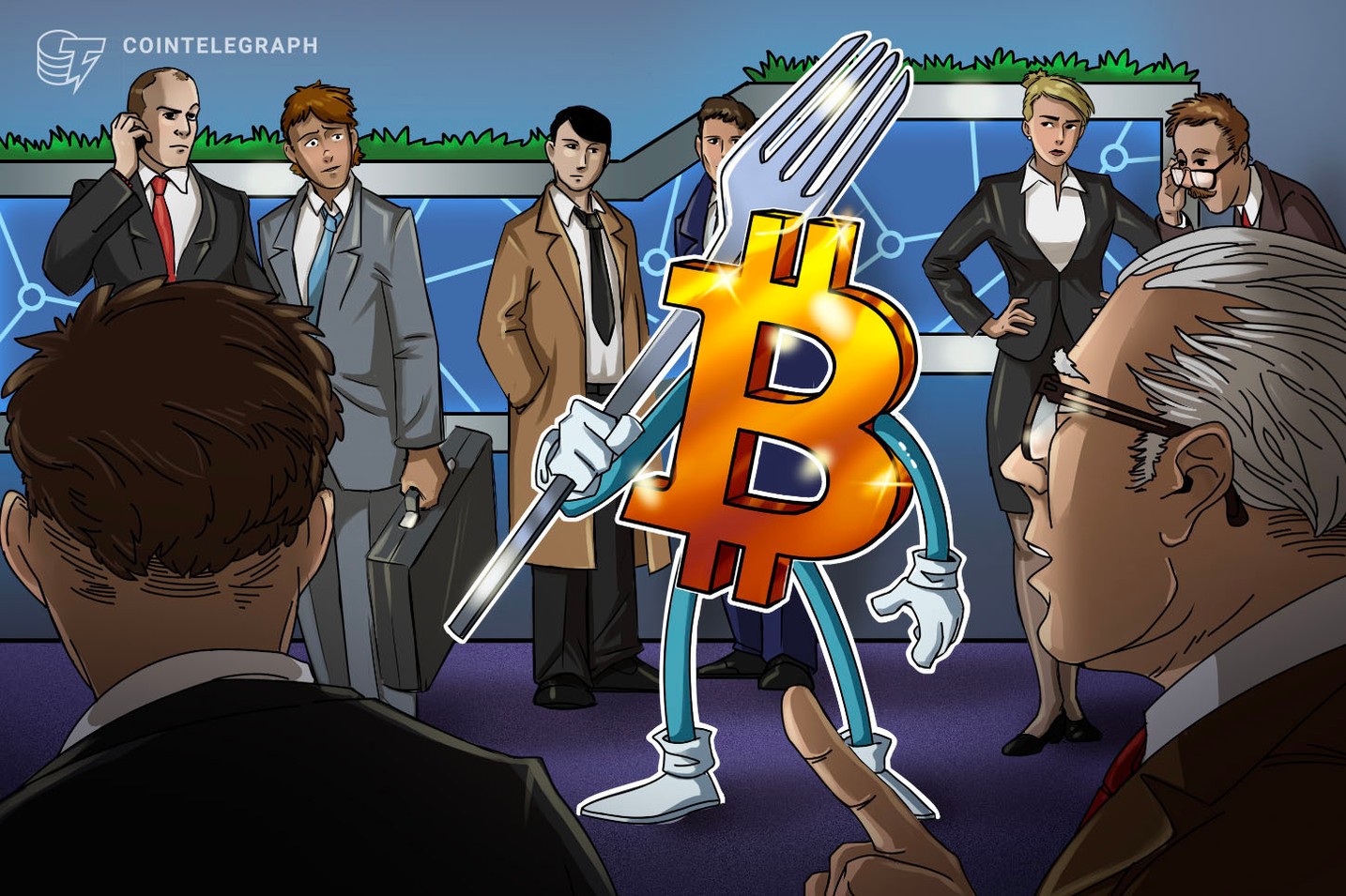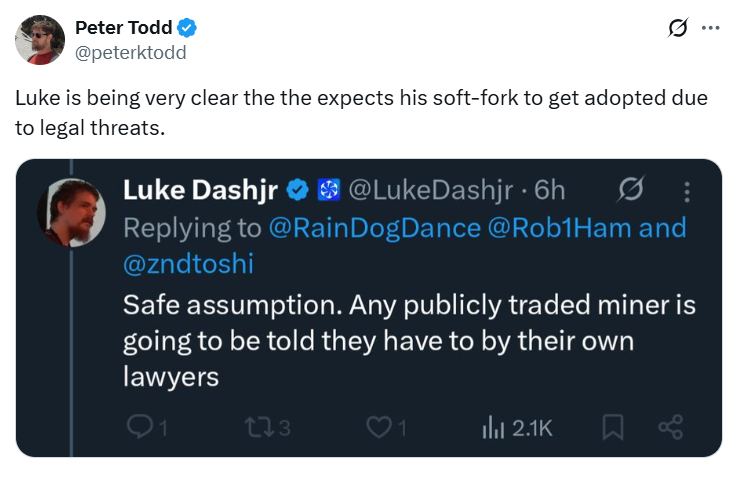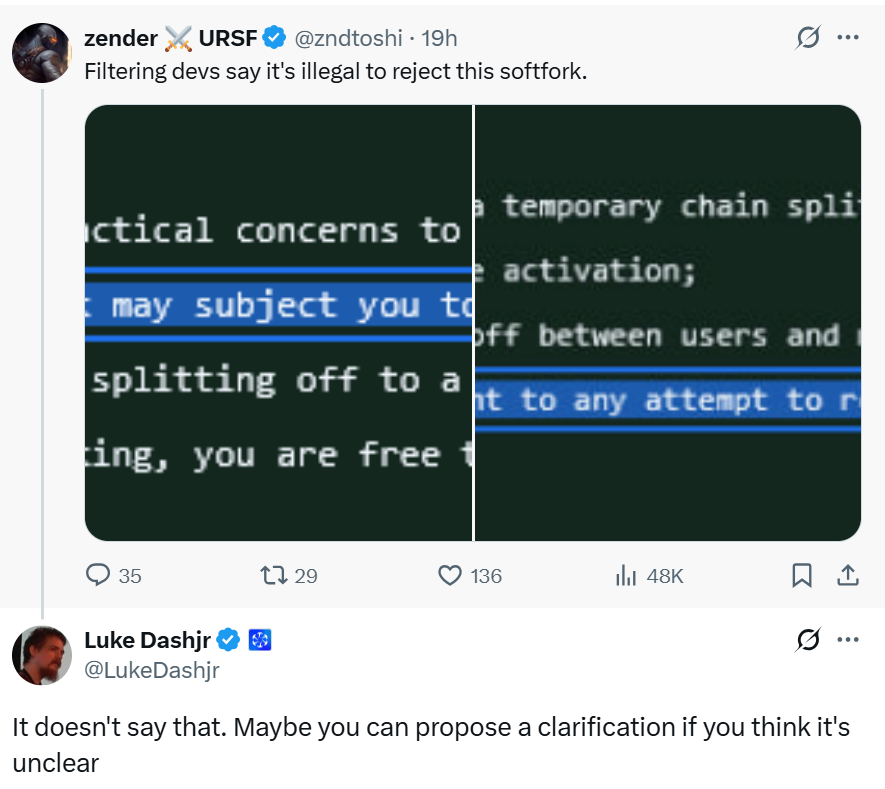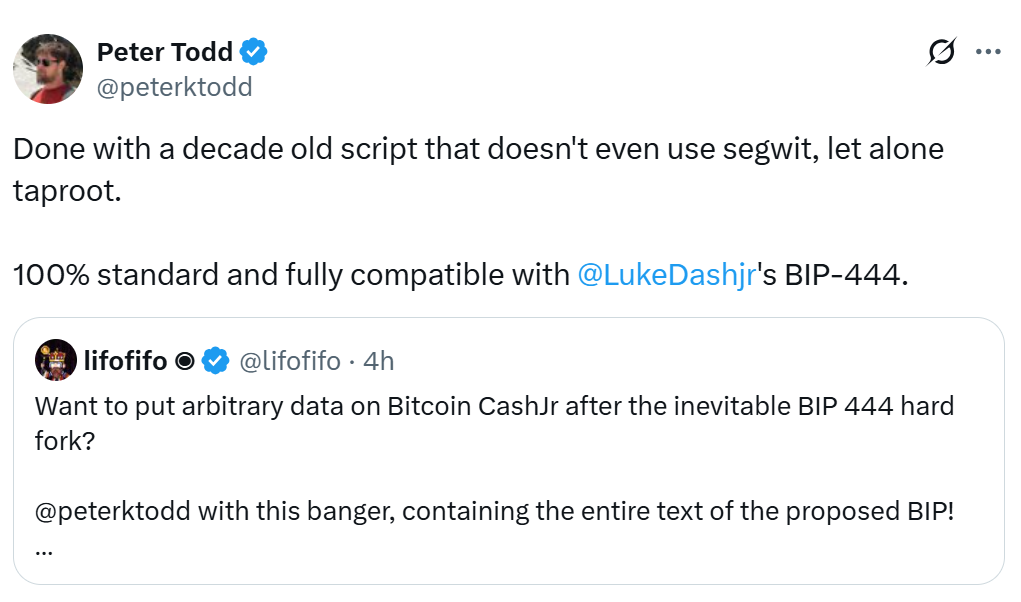
A newly suggested Bitcoin improvement proposal seeks to implement a soft fork for one year while the debate around transaction filtering is addressed. However, the language in the proposal has ignited strong reactions within the community.
The proposal, put forward by core developer Luke Dashjr and made public on Friday, has heightened tensions in the ongoing Bitcoin Core versus Knots debate regarding Bitcoin’s intended use and the filtering of non-financial transactions.
The purpose of this soft fork is to limit data within Bitcoin transactions while a lasting solution is crafted, tackling concerns that illicit and immoral content might be embedded into the blockchain following the recent Bitcoin Core v30 update.
Nonetheless, the proposal includes a contentious clause stating there are “moral and legal impediments to any attempts to reject this soft fork.” Additionally, it reads that opposing the fork could lead to legal or moral repercussions or force users into a potential split with an alternate coin like Bcash, while asserting users are “free to choose.”

Several lines in a new Bitcoin improvement proposal are being criticized as an attack on the blockchain. Source: GitHub
Some view it as a legal threat
Bitcoin, the pioneering cryptocurrency, was created to disrupt conventional financial systems and empower its users. Critics of this proposal argue that any attempt to censor or limit data contradicts Bitcoin’s fundamental principle of being permissionless.
In a post over the weekend, a user named Bam, who is a founder of a Bitcoin education platform and a systems engineer, labeled the proposal’s wording as “Orwellian,” referring to George Orwell, the author known for depicting a totalitarian future in his book 1984.
Ben Kaufman, a software engineer, claimed that a fork enforced under threats of legal ramifications represents a clear attack on Bitcoin.
Peter Todd, a Canadian cryptographer and computer scientist, weighed in with criticism alongside a screenshot of Dashjr, asserting that it appears Dashjr anticipates the adoption of his soft fork due to the associated legal threats.

Source: Peter Todd
Alex Thorn of Galaxy Digital remarked on Todd’s post, expressing agreement that the proposal is “explicitly an attack on Bitcoin” while also calling it “incredibly stupid.”
Others have cautioned that divisions among miners and users could lead to a network chain split.
Misinterpretations persist
Historically, users could embed messages on the blockchain; the recent Bitcoin Core v30 update permits larger data loads, which the proposal argues exposes anyone engaging with the network to potential criminality if any embedded content violates the law.
Some users on X mention that this legal liability is what the proposal indicates, particularly highlighting that not adopting the fork could lead to the introduction of illegal content, thereby resulting in legal or moral implications.
Dashjr seemed to support this viewpoint, responding to a user who said rejecting the soft fork is illegal, suggesting that perhaps clarification is needed if the language lacks clarity.

Source: Luke Dashjr
He mentioned, “May isn’t certainly. Also, for some context, I believe this part originated in an earlier draft, which didn’t have the proactive activation (i.e., the opposing chain would definitely include CSAM) — so it likely makes sense to provide further clarification.”
The soft fork may end up being irrelevant
The proposal for the soft fork continues to advance without technical objections, as noted by Dashjr.
Related: Another ‘Satoshi era’ wallet from 2009 has awakened and moved Bitcoin
However, Todd has claimed to find a way to circumvent the fix proposed, asserting he recorded a transaction featuring the entire proposed fork text that is “100% standard and fully compliant” with the improvement suggestion.

Source: Peter Todd
Lastly, BitMEX Research expressed that any malevolent actor might utilize illegal content on-chain to instigate a reorganization attack, creating an “economic incentive” for placing illicit content on the chain.


